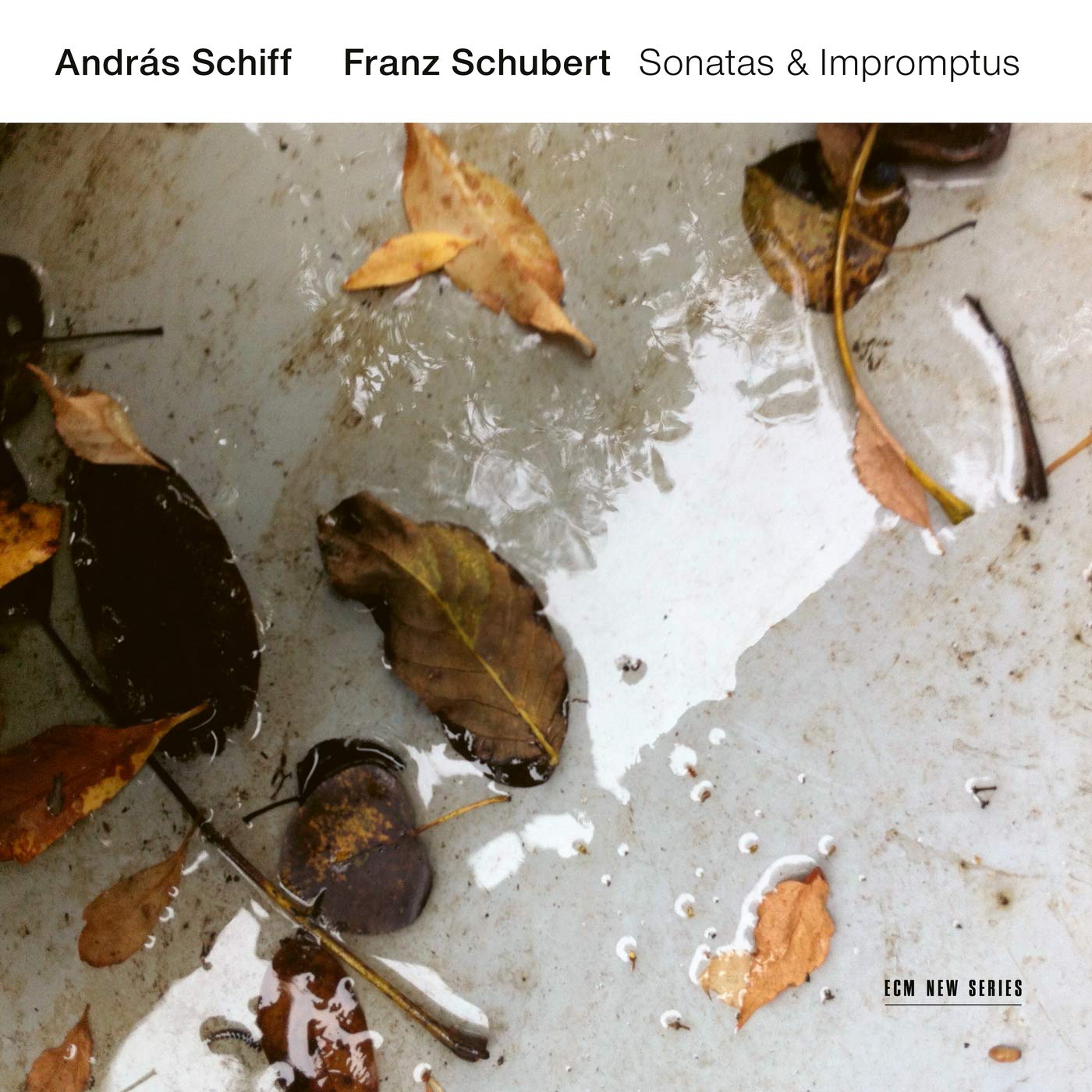András Schiff (Brodman c. 1820)
124:21
ECM 2535/36 (2 CDs in a card wallet)
D899, 946, 958 & 959
Schubert’s final two years before his tragically early death in November 1828 were marked by a fecundity that would have been extraordinary for a man in his prime. For a man in failing health they were miraculous. These were the years of not only Der Winterreise, the two Piano Trios (opp 99 & 100) and the sublime C major String Quintet, but the piano works included on these CDs: the four Impromptus, D 899 (1827), the Drei Klavierstücke, D946 and the two big sonatas, the C minor, D 958, and A major, D 959, all composed in the year of the composer’s death.
Riches indeed and riches enhanced not only by the superb performances of Andras Schiff, one of the great Schubertians of our day, but also his choice of instrument, a remarkable Viennese fortepiano built by Franz Brodmann around 1820. Among its features are no fewer than four pedals: soft pedal, bassoon, moderator and a sustaining pedal. It is the judicious and highly effective use of these pedals that allows Schiff to bring to these works a kaleidoscopic gamut of aural colour, from the delicacy of the soft cimbalom-like sounds in the top register to the rich, nut-brown chocolaty timbres in the middle to lower register, where at the bottom of the compass the sounds take on a bell-tolling profundity. At times, as in the heavy peasant stomping of the third of the pieces of D 946, the instrument becomes capable of an almost orchestral depth and richness of sonority.
Schiff’s mastery and understanding of this remarkable instrument is apparent from the opening chord of the first piece on the programme, the C-minor Impromptu, where the dying away of the overtones is judged to perfection. The listener’s attention is thus immediately fully engaged and prepared for the perfectly articulated opening theme, a melody of infinite sadness, of longing for some idealized, long lost world. One notes almost immediately, too, the rich resonance of the bass and the perfect balance of weight between hands. The latter is very much a feature of these performances in general, an important point because it enables the part writing to be revealed with a natural clarity that never has to be highlighted or forced.
There are wonders to be experienced throughout these performances, but the great A major Sonata, perhaps deserves special mention for the manner in which Schiff captures its multifaceted character. In the big opening Allegro the strong imposing chords of the opening give way to watery cascading rippling. When the contrasting second idea arrives after an entrancingly muted introduction – exquisite use of the soft pedal, which is quite different to that of a modern piano – it has in Schiff’s hands all the innocent vernal freshness of a spring day. In the Andantino, a sad, limping waltz, the pianist also manages to convey a kind of inner repose, while in the strange, stormy central section he conjures up strangely harsh, disconcerting chords. Nothing could be more contrasted than the playfully capricious Scherzo that follows, tellingly set off against the more reflective central Trio. The Rondo finale has for its main theme one of those timeless, heavenly melodies that could have been written by no one other than Schubert, any temptation to sentimentality adroitly avoided by Schiff.
There is much else that might be said about such stellar playing, but in truth these are performances to be experienced, not subjected to the inadequacies of the written word. I would fervently urge everyone to hear them.
Brian Robins
